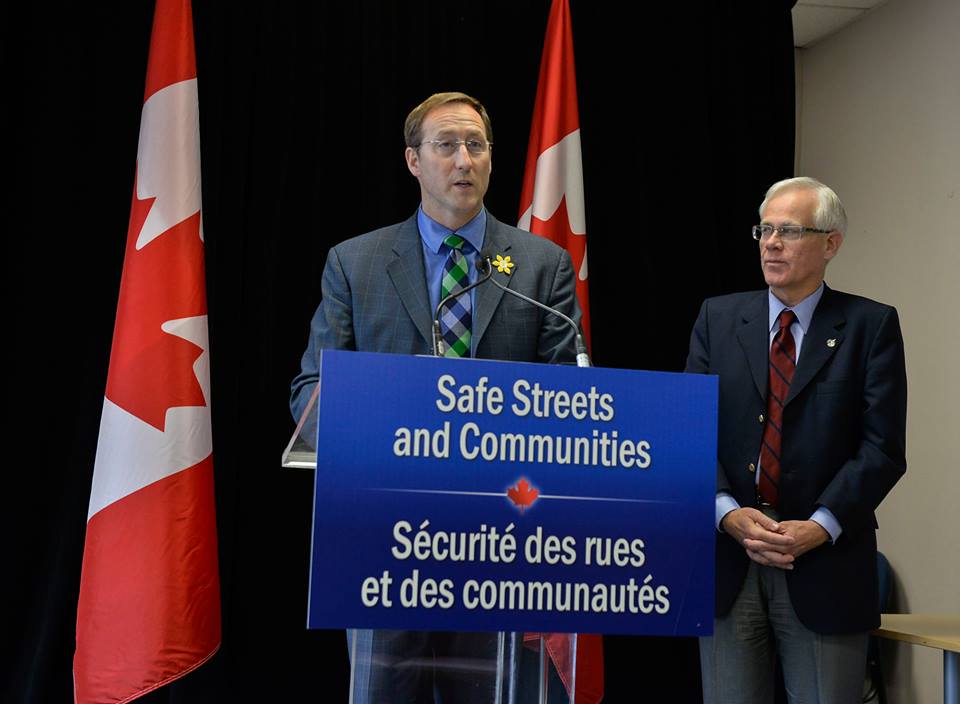
When authorities revealed the stunning news of an alleged plot to attack a Halifax shopping mall both police and federal Justice Minister Peter MacKay stressed it wasn’t a terrorist plot.
MacKay told reporters at a news conference on Saturday that the alleged plan appeared to be product of a “group of murderous misfits” prepared to “wreak havoc and mayhem on our community.”
Police said they would not define the suspects as an alleged terrorist group, saying there is no evidence they are linked by ideology or culture or that they have any connections to a terrorist organization. So, how has it come about that an allegation of plotting to cause mass murder in a public place is not an allegation of terrorism?
Defining terrorism is a complex task, one that has preoccupied governments since the Sept. 11 attacks on New York and Washington, experts say. And with Prime Minister Stephen Harper’s new anti-terror bill before Parliament, taking a closer look at the Canadian definition is all the more crucial.
“The problem of defining terrorism has been a thorny one from the get-go,” said terrorism expert John Thompson, vice president of Strategic Capital and Intelligence Group.
“Terrorism overlaps with so many other activities. When does a violent protest become terrorism? When does some sort of psychotic episode where someone is acting out become terrorism? It’s a very hazy border.”
In Canada, section 83.01 of the Criminal Code defines terrorism as an act committed “in whole or in part for a political, religious or ideological purpose, objective or cause” with the intention of intimidating the public’s security or compelling a person, government or organization to do or refrain from doing an act.
Thompson said this definition was intentionally general and open to interpretation, but the key element is a political or ideological motivation.
“Terrorists can attack literally anything and they have, but the motivation has to be more political than anything else. Terrorism has always got an ideology involved in it,” he said.
Two suspects have been charged with conspiracy to commit murder. Had they been accused of terrorism, the range of offences and potential punishment would have been much greater, said Thompson.
“Some of our terrorism legislation is high-powered and we don’t want it to be used for every single case,” he said.
Andrew Mack, a security expert and professor in the school for international studies at Simon Fraser University, called the alleged Halifax plot a “deadly criminal offence,” but not a terrorist one.
“The important point there is political intent, and ‘political’ is fairly widely interpreted,” he said. “If we’re talking about (ISIL), for example, they will always justify what they’re doing in religious terms. But as far as law enforcement is concerned, that’s political.”
There has been considerable debate over whether terrorism should be defined separately from other acts of mass violence, said Christian Leuprecht, a security expert with Queens University and the Royal Military College of Canada.
“This is an issue that was raised after 9-11 and this is an issue that continues to preoccupy us,” he said. “Is there a point in actually having terrorism as an offence at all?”
However, Leuprecht said he believes the legal distinction is important.
He said Canada’s anti-terror legislation affords police more powers in preventing planned attacks, but investigations tend to be longer and more laborious. The government also must be able to identify and define terrorist organizations, he said.
“If we simply rely on Criminal Code provisions then we can’t lay out those clear distinctions,” he said.
Leuprecht added there are “mountains of case law” for prosecutors to rely on when it comes to seeking a conviction for conspiracy to commit murder. But terrorism-related offences are a relatively new area of law and only a small number of people have been convicted.
He said the target of the attack is important, pointing out an alleged plot to attack the Nova Scotia legislature would have likely been considered terrorist.
“These are distinct threats to the broader national security of Canada,” he said. “Plotting to commit an attack on a mall in Halifax, while atrocious, is not an inherent risk to the security of Canada.”
The suspects charged in connection with the Halifax case, Lindsay Kantha Souvannarath, 23, and Randall Steven Shepherd, 20, are to appear in court on Tuesday to face the allegations, which haven’t been proven in court.
A third suspect, a 19-year-old teen, was found dead by police in a Halifax area home while a fourth person, a 17-year-old, was arrested but later released without being charged.